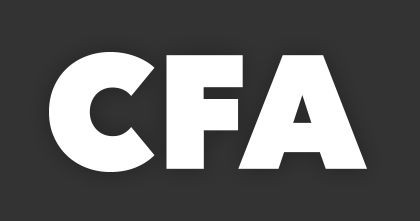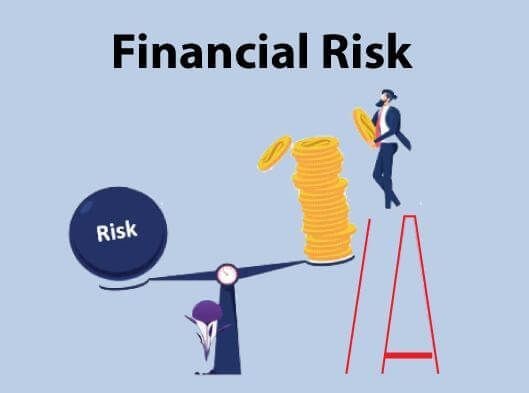
Two hottest and well known designations in the International Financial Market are the FRM and the CFA Charters. Both designations are a league of its own and mark for eminent careers, especially for those of you who live and breathe finance. So FRM v/s CFA: Which one is better for you to opt? From the perspective of a successful career, is FRM the right certification for you? Or is CFA the career path you should venture on? How do you choose? And who do you turn to for the information regarding the consequent courses?
If you are at the crossroad deciding between CFA and FRM, and have no idea about the next step to take, then you are the right place for guidance in your formal decision. We’ll help you in choosing the right career path, bring the best career opportunities in your line. Hence, to decide between the prospects, we need to learn about the courses in detail first. Here, in this article we’ll figure out the meaning, similarities, differences, benefits, eligibility and a head on comparison between the two.
What is CFA charter?
Chartered Financial Analyst (CFA) is a professional accreditation which is a program for all financial professionals by the CFA Institute. The CFA Charter is internationally popular as the “gold standard” of all financial analyst designations. Apart from giving you a general overview of other areas in finance, this program also covers a range of important topics such as: investment and portfolio management, financial analysis, stocks, bonds, and derivatives.
The Basics of Becoming a Chartered Financial Analyst (CFA)
The CFA charter is one eminent designation in finance and is widely popular as gold standard in the field of investment analysis. The designation is handed out by the CFA Institute. It is a global NPO of more than 200,000 charter holders, portfolio managers, and other financial professionals in 160 societies. Its stated mission is to promote and develop a high level of educational, ethical, and professional standards in the investment industry.
Before becoming a CFA charter holder, a candidate must meet one of the following educational requirements. The candidate must have four years of professional work experience, a bachelor’s degree or be in the final year of the bachelor’s degree program, or have 4,000 hours work experience over a minimum of three years. For the undergraduate qualification, the completion of bachelor’s program is must before registering for the Level III exam. In addition to the educational requirement, the candidate must have an international passport, complete the assessment in English, meet the professional conduct admission criteria, and live in a participating country.
What is the FRM Charter?
Financial Risk Manager (FRM) is an international accreditation offered by the Global Association of Risk Professionals (GARP)to qualified professionals who have successfully cleared all levels of the FRM Exam. With this charter, you become a distinguished Risk Management Professional in the global marketplace. The Charter empowers you as a Risk Management Professional. Gaining the charter itself means that your abilities as a Risk Manager is an approvement of international professional standards. Hence, marked with the seal of global excellence.
Broadly speaking, financial risk management is an active process by which the economic value of a firm is under protection by using different financial mechanisms to reduce and mitigate risk exposure. Various types of risk fall under risk management. Two levels of exams must be written to obtain the FRM designation. It it is widely considered a strong credential in the field of financial risk management.
Professionals in financial risk management often attempt to determine whether they should take the FRM or CFA. And we will examine the criteria that may make the FRM the right choice for you.
Similarities between the FRM and the CFA Charter
The best thing about these charters is that you don’t have to pick one. You can master both the designations. Both FRM and CFA are excellent career choices for professionals. Candidates who have mastered the art of finance and analysis (or are intrigued to learn all about them). For both exams, you have to pass a certain set of exams. You can’t move to the next level of the Exam until you pass the first. The exams for each charter require a lot of study, practice, patience, disciple, and passion for committed learning.
Differences between the FRM and the CFA Charter
The main difference between the CFA and FRM Charters are the topics covered and the exam structure that is unique to both the designations. We have listed them below:
Topics covered difference:
FRM is a more specialized designation than CFA. It mainly focuses on managing operational, credit, market, foreign exchange, volatility, liquidity, inflation, business, legal, reputational, and sector risk. On the other hand, CFA covers topics such as corporate finance, portfolio management, fixed income, accounting, reporting, quantitative analysis, and derivatives.
Exam structure difference:
FRM has two exams (Part I and Part II), and CFA has three exams (Level I, Level II, and Level III).
Eligibility Criteria
FRM Eligibility Criteria
Candidates must have completed their bachelor’s to apply for this course. Students must also pass both FRM levels, have two years of work experience, and be GARP members. Besides, there are no such eligibility criteria specified by the authorities.
CFA Eligibility Criteria
At the time of application, candidates must ensure they have earned their bachelor’s degree or be in their final year of study. Students must pass the required entrance exams for the programme. There is no maximum age for enrollment in the programme.
CFA vs FRM: Career Path
In general, CFAs have more career options than FRMs, especially in managerial positions, because of the nature of their studies. The CFA curriculum focuses on broad aspects and topics in finance. Naturally CFAs have more options when it comes to picking a career. They specialize in managing and maximizing a firm’s investments. They also work in investment banks, hedge funds, and corporate finance, doing investment banking, portfolio management, and equity research.
FRMs on the other hand, are specialists. Their role is more focused and specialized than CFAs. They focus on minimizing risk by analyzing and managing risk.
Top Colleges that offer CFA in India are as follows:
- CIIMS, Jabalpur
- Amity University, Noida
- Bennett University, NOIDA
- G.D. Goenka, Gurugram
- Lovely Professional University
- ICOFP, New Delhi
- ICOFP, Kolkata
- ICOFP, Chennai
- ICOFP, Lucknow
- Narayana Business School, Jaipur
Listed below are the popular colleges for FRM:
- JK Academy of Professional Excellence
- Skillfin Learning
- Seair Exim Solutions
- Share Market Solutions
- PFA Institute
- Toppers Trading Institute for Share Market
- Bhakoo Training Institute Pvt. Ltd.
- EMS Share Market Classes
- Excel Strategies
- Vruddhi Vikas Group
Conclusion
When it comes to a career, narrowing your options down to one decisive element might be difficult. The CFA and FRM designations are among the highest regarded in the financial industry and require significant time and effort. Choosing the one that fits your schedule and keeps you on track with your professional goals.
The CFA charter is intended for professionals working in investment management, such as investment bankers or portfolio managers. The CFA charter requires a candidate to complete challenging tests in economics, ethics, money management, and other financial issues. Not only is the designation well known and accepted worldwide, but also connects one to the best in the industry. The FRM certificate is ideal for those pursuing risk management or risk assessment careers in banks or corporate treasury departments. Risk exists for the typical investor, but it is also a reality for the financial institutions that serve them. An FRM certificate holder may assist a company with identifying risk, pricing risk into their products, and minimizing risk wherever possible.
Whatever career path you take should depend on your interests and passion for what you like to do.


